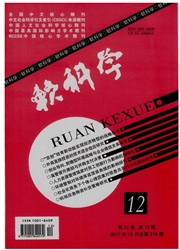

 中文摘要:
中文摘要:
从经济学的角度分析能源消费和环境污染变化的机理是确定环境质量演变的影响因素,制定有效的经济激励手段减少能源消耗、降低污染排放,进而改善环境质量的理论基础。通过建立因素分解模型将经济增长对环境质量演变的影响细分为规模效应、人口效应、三层次的结构效应和削减效应,运用LMDI分解分析方法对我国工业能源消费、工业二氧化硫排放、工业废水排放和工业固体废弃物产生量的变化进行分解,结果表明:规模效应是能耗和排污增加的主要因素;人口效应虽然也增加能源消费和污染物排放,但是影响效果远低于规模效应;技术效应是降低能耗和排放的主导性因素,三层次的结构效应在不同年份的影响不确定,但是总体来看促进了能源消费和污染物排放,其中第二层次和第三层次的行业结构效应对能耗和排污的影响高于工业增加值比重变化对能耗和排污的影响。
 英文摘要:
英文摘要:
The economic analysis on the evolutionary mechanism of energy consumption and environment pollution underlies the determination of the factors influencing environmental evolution,the formulation of effective economic incentives to reduce energy consumption and pollutant emission and improve environment quality.A factor decomposition model is built to separate the impact of environment pollution on economic growth into the effects of scale,population,industrial structure and abatement.Logarithmic Mean Divisia Index(LMDI) is used to decompose the changes of industrial energy consumption,waste SO2 emission,waste water discharge,and solid wastes.The result demonstrates that: economic growth has a major impact on the increase of industrial pollution and energy consumption while population growth contributes much less to them;technological progress contributes the most to the reduction of energy consumption and pollution;the effect of structure on the changes of various pollutants in different years is uncertain,while in general it contributes to energy consumption and environment pollution,of which the structural effect of the second level and third level on energy consumption and environment pollution is higher than the effect of the changes in industrial added values.
 同期刊论文项目
同期刊论文项目
 同项目期刊论文
同项目期刊论文
 Why is Chinese GDP Statistics Data Distorting? An Explanation of Game Equilibrium Evolutionary Model
Why is Chinese GDP Statistics Data Distorting? An Explanation of Game Equilibrium Evolutionary Model Constructivism scenario evolutionary analysis of zero emission regional planning: A case of Qaidam C
Constructivism scenario evolutionary analysis of zero emission regional planning: A case of Qaidam C Dynamics of a delayed discrete semi-ratio-dependent predator-prey system with Holling type IV functi
Dynamics of a delayed discrete semi-ratio-dependent predator-prey system with Holling type IV functi 期刊信息
期刊信息
